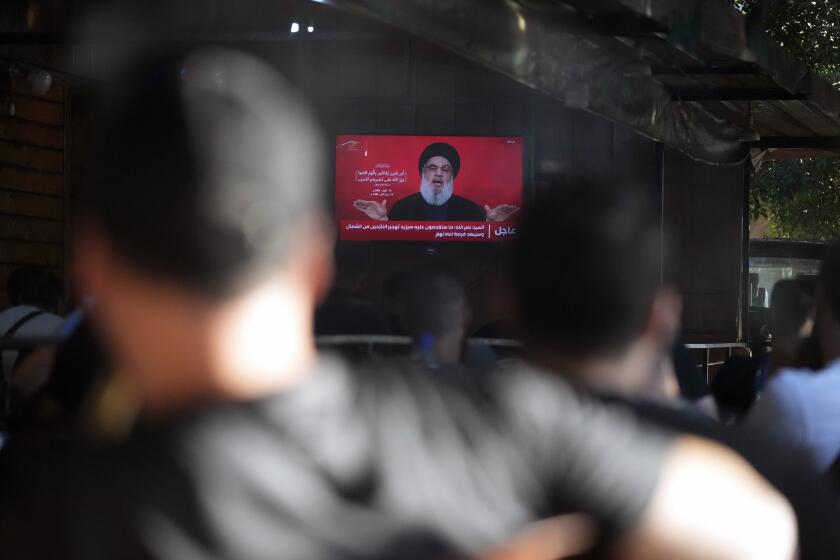Fast-food industry is quietly defeating Happy Meal bans
The restaurant industry is quietly — and successfully — fighting back against the enactment of so-called Happy Meal bans, which forbid restaurants like McDonald’s to hand out toys with children’s meals that are high in calories.
Moving under the radar so stealthily that in some cases local politicians and anti-obesity activists missed it entirely, lobbyists in Florida and Arizona backed successful efforts to take away the power to enact such bans from cities and counties. In Nebraska, a proposed statewide Happy Meal ban died in February, even before its first legislative committee hearing.
“Somebody was working the committee,” said Nebraska state Sen. Bill Avery, who sponsored the proposed toy ban. “The bill was killed and indefinitely postponed without discussion.”
First enacted in the Northern California counties of Santa Clara and San Francisco last year, the bans have won the support of public health activists throughout the nation. A ban is under consideration in New York City, which like California has been aggressive in requiring restaurant chains to post calorie counts and other nutritional information. Toy bans are meant to discourage restaurant chains from tempting youngsters to consume high-calorie, sodium-laced fried fare that has been linked to soaring levels of obesity in U.S. children.
A group of public health advocates — including obesity experts at Tufts University, the American Academy of Child and Adolescent Psychiatry and the Chicago Hispanic Health Coalition — is running full-page ads in several newspapers this week calling for McDonald’s to stop marketing to children and to retire its mascot clown, Ronald McDonald.
Such measures have been widely ridiculed by restaurant owners and many conservatives, who say that parents, not lawmakers, should decide what children can eat and whether they can have a toy. A proposed toy ban in Superior, Wis., garnered only one vote late last year.
Still, as the idea has gained traction, many in the industry realized that they had to act quickly, said Steve Chucri, president of the Arizona Restaurant Assn.
“We felt that this had the capacity to really spread quickly into other states and become the rule, not the exception,” Chucri said. “We wanted to make sure that we were proactive in not having that happen in Arizona.”
Chucri and his organization, with the support of the National Restaurant Assn. in Washington, prepared a bill that made it illegal for cities and counties in Arizona to try to regulate any incentives that restaurants provide to entice customers. The law does not stop lawmakers at the state or federal level from passing a toy ban.
The organization wrote the bill’s language and proposed it to sympathetic members of the Arizona Legislature, Chucri said. It passed in March and was signed into law last month by Arizona Gov. Jan Brewer.
In Florida, pro-industry legislators inserted language banning cities and counties from regulating the nutritional content and marketing of restaurant food into three bills. Two failed in committee. But one version, slipped into an 18-page bill mostly about licensing for vacation rentals and rooming houses, passed May 6. The measure is awaiting the signature of Florida Gov. Rick Scott.
Richard Turner, chief counsel for the Florida Restaurant and Lodging Assn., is optimistic that Scott will sign the bill.
“It’s ridiculous to blame restaurants for someone’s weight,” he said.
Turner said the industry has already begun adding salads to menus aimed at adults and offering choices such as apple slices and milk in children’s meals. He said that allowing cities and counties to regulate the marketing and nutritional content of food would create a hodgepodge of rules that would be difficult for restaurant chains to follow.
Fast food is a $170-billion industry in the United States, according to the National Restaurant Assn. Chains market heavily to children, mostly with TV commercials and incentives like toys. Many are tied to popular children’s movies and TV shows. According to a recent congressional report, food companies spent about $1.6 billion in 2006 marketing to children. About $360 million was spent on the toys included with kids’ meals, incentives that restaurant marketers have long viewed as key to bringing in families with children.
The toy bans have become associated with the fast-food giant McDonald’s Corp. because its Happy Meals are the most prominent fast-food children’s promotion. But the bans would apply to other restaurants as well. McDonald’s has kept a low profile during the debates, limiting its exposure to sending representatives to public hearings and issuing the occasional news release. The company points out that its children’s meals now include healthier options, such as juice instead of soda and apple slices instead of fries.
The company has deferred most public comments on the matter to state and national restaurant associations.
Sue Hensley, spokeswoman for the National Restaurant Assn., said there’s no orchestrated national campaign to fight the toy bans, although the organization is working “hand in glove” with its state affiliates as they try to make their case.
“Certainly, there are conversations about strategy,” Hensley said. “It’s something that we’re following very, very closely.”
Now, with a new Happy Meal ban on the table in New York City, the industry is taking the fight there. Both McDonald’s and the New York State Restaurant Assn. oppose the legislation, which would ban toys with high-calorie, high-sodium meals. McDonald’s has run some commercials in the area promoting Happy Meals as joyful, but the company has not stepped into the fray directly.
Nutritional activist Deborah Lapidus, who heads a campaign against food marketing to children for the group Corporate Accountability, said the industry’s decision to work largely behind the scenes is a strategic one, meant to head off possible toy bans before they can pop up and gain public support.
“The fast-food industry poses as a champion of parental choice,” Lapidus said. “Then behind closed doors the industry denies parents and communities the choice to safeguard their children’s health. That’s why they’re so concerned about hiding and masking these efforts.”
More to Read
Sign up for Essential California
The most important California stories and recommendations in your inbox every morning.
You may occasionally receive promotional content from the Los Angeles Times.










